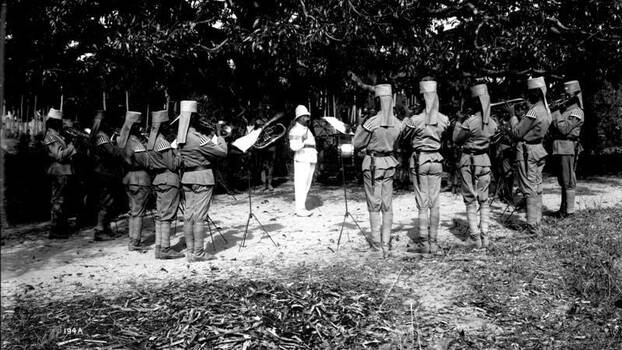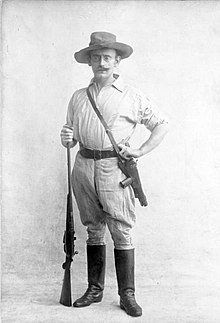In the late 19th century, as European powers scrambled for colonies in Africa, one man emerged as a pivotal figure in Germany’s colonial ambitions: Carl Peters. His legacy is one of ambition, controversy, and imperialism.
Carl Peters was a German explorer, journalist and philosopher, instrumental in the founding of German East Africa and helped create the European “Scramble for Africa”. Despite being vilified for cruelty to Africans and removed from office, he was later praised by Kaiser Wilhelm II,the last German Emperor and King of Prussia from 1888 until his abdication in 1918. Carl was also considered a German hero by Adolf Hitle, an Austrian –Born German Politician and Dictator.
Carl Peters was born on September 27, 1856, to a Reverenved minister Christian August Friedrich Peters and Mother Lynne Clanda .
He attended the local monastery school in Ilfeld until 1876, after which he pursued higher education at universities in Göttingen, Tübingen, and Berlin, focusing on history, philosophy, and law. His studies were supported by scholarships and his early achievements in journalism and writing. In 1879, he graduated from Berlin University with a degree in history. The following year, Carl, decided to abandon a legal career and moved to London to stay with a wealthy uncle.
During his four years in London, Peters delved into British history and examined its colonial policies and philosophies. After the tragic suicide of his uncle in 1884, Carl, returned to Berlin, where he played a key role in founding the “Society for German Colonisation.”
As a bright student, he pursued studies in law and geography, which would later shape his worldview. His fascination with Africa was sparked during his studies, leading him to join the German East Africa Company.”

In 1884, Peters embarked on his most ambitious project: the colonization of Tanganyika, now present-day Tanzania.
Accompanied by two friends, Count Joachim Von Pfeil and Karl Juhike, Carl Peters secretly journeyed to East Africa specifically
to secure treaties with local chiefs.
Carl,arrived with a caravan of 40 bearers, he has dispatched hired messengers along the routes to proclaim his fame and influence ahead of his arrival.
WATCH:
Despite lacking official approval from the German government, he was optimistic that his efforts would result in the establishment of a new German colony in Africa. On November 4, 1884, he landed on the coast at Bagamoyo, directly across from Zanzibar and over the course of just six weeks, Carl and his colleague, along with his 40 bearers who carried flags, Trinkets and ammunition, succeeded in persuading both Arab and African chiefs to cede exclusive rights to land and trade routes.

One notable agreement, known as the “Treaty of Eternal Friendship,” involved Sultan Mangungu of Msovero, Usagara, who offered his “territory with all its civil and public privileges” to Dr. Karl Peters as the representative of the Society for German Colonisation, granting “the exclusive and universal utilization of German colonization.”
Peters , managed to negotiate treaties with local chieftains, often under dubious circumstances, claiming vast territories for the German Empire. His actions laid the groundwork for the establishment of German East Africa.”
“Peters’ methods were often criticized. He employed coercion and manipulation to secure land, leading to conflicts with indigenous populations.

His controversial tactics sparked outrage among human rights advocates, both in Germany and abroad. Peters faced accusations of brutality, yet he remained a staunch defender of his actions, arguing they were necessary for civilization.” This led him to killing six obstinate warriors in less than 3 minutes with his guns during his land acquisition expedition.
“Despite the controversies, Peters’ influence grew. He became a member of the German Reichstag and was instrumental in shaping colonial policy. His vision of a German empire in Africa resonated with nationalistic sentiments, contributing to a fervent push for imperial expansion.”
In 1891, Carl Peters was appointed commissioner of the newly renamed protectorate of German East Africa, establishing his base at a newly created station near Kilimanjaro. However, by 1895, troubling rumors began to circulate in Germany regarding Peters’ harsh and brutal treatment of the local African population. Infamously known in Africa as “Milkono wa Damu,” meaning “the Man with Blood on his Hands,” he soon faced mounting pressure and was recalled from German East Africa to Berlin amid growing concerns about his actions.
WATCH
The following year, a judicial hearing was set to address the serious allegations against him. Yet, during this critical period, Peters chose to relocate to London, seeking to evade the scrutiny that awaited him. During his five-week stay in East Africa, Carl ,managed to secure several regions that were comparable in size to Southern Germany, further expanding his ambitions despite the controversies surrounding him.
In 1897, he faced official condemnation for his violent assaults on African natives, which ultimately led to his dismissal from government service. This judgment drew significant criticism from the German press, which questioned the integrity of the proceedings.
Settling in London, Peters established an independent venture called the “Dr. Carl Peters Exploration Company.” This company financed several expeditions back to German East Africa and into British territories around the Zambezi River. His adventures and experiences during these journeys became the foundation for his book, *Im Goldland des Altertums* (The Eldorado of the Ancients), in which he described the region as the legendary lands of Ophir.
Today, Carl Peters remains a polarizing figure. His actions have sparked ongoing debates about colonialism, ethics, and the impact of imperialism on native populations. In Tanzania, his legacy is remembered with mixed feelings—both as a symbol of oppression and as part of the complex history of the region







